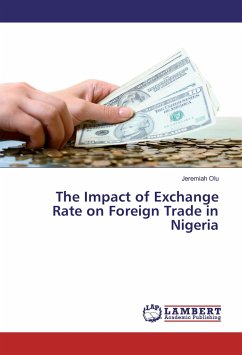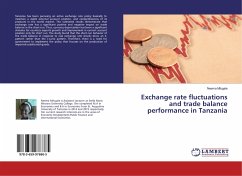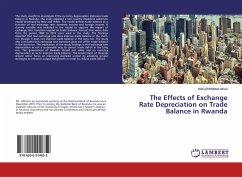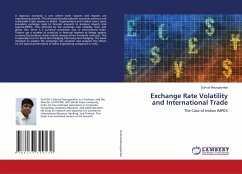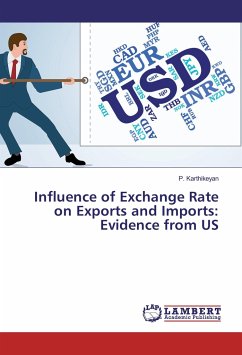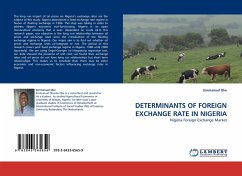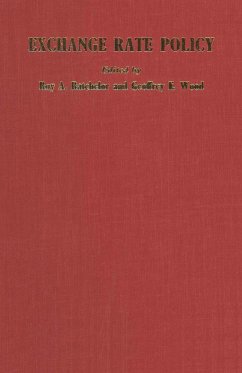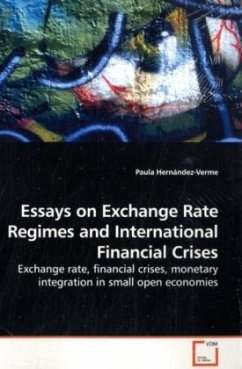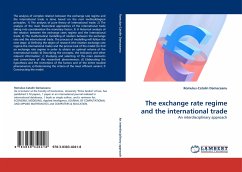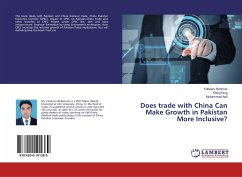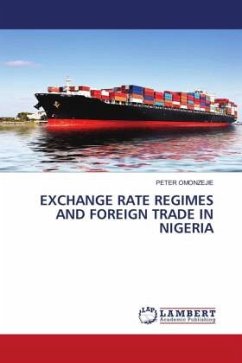
EXCHANGE RATE REGIMES AND FOREIGN TRADE IN NIGERIA
Versandkostenfrei!
Versandfertig in 6-10 Tagen
40,99 €
inkl. MwSt.

PAYBACK Punkte
20 °P sammeln!
Globally, trade between nations has always been imperative due to the indubitable fact that irrespective of a country's level of development, wealth and natural endowments, it can never be self-sufficient.Successive governments of Nigeria have formulated various policies on exchange rate regime management due to its importance in foreign trade, but empirical studies have not been focused on the relationship between these regimes and foreign trade.Consequently, this study filled this gap using quarterly time series data (1970-2016).The Autoregressive Distributed Lag (ARDL) regression estimation...
Globally, trade between nations has always been imperative due to the indubitable fact that irrespective of a country's level of development, wealth and natural endowments, it can never be self-sufficient.Successive governments of Nigeria have formulated various policies on exchange rate regime management due to its importance in foreign trade, but empirical studies have not been focused on the relationship between these regimes and foreign trade.Consequently, this study filled this gap using quarterly time series data (1970-2016).The Autoregressive Distributed Lag (ARDL) regression estimation technique was adopted. The interaction variable (DUMEXCR) proxy for exchange rate regimes was used in addition to other independent variables.The results revealed a long-run inverse and significant relationship between flexible exchange rate regime and foreign trade such that an increase in exchange rate by 1/US$ caused foreign trade to decline while during fixed exchange rate regime foreign trade increased which means that fixed exchange rate regime is more trade-enhancing. Recommendations were made that would help to minimize exchange rate instability in order to attain a favorable trade.



